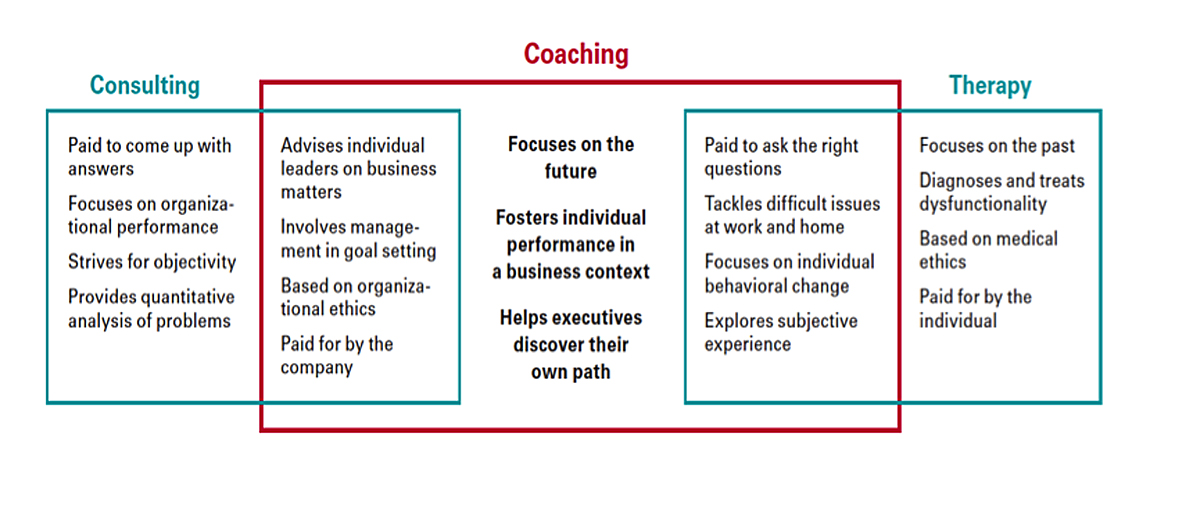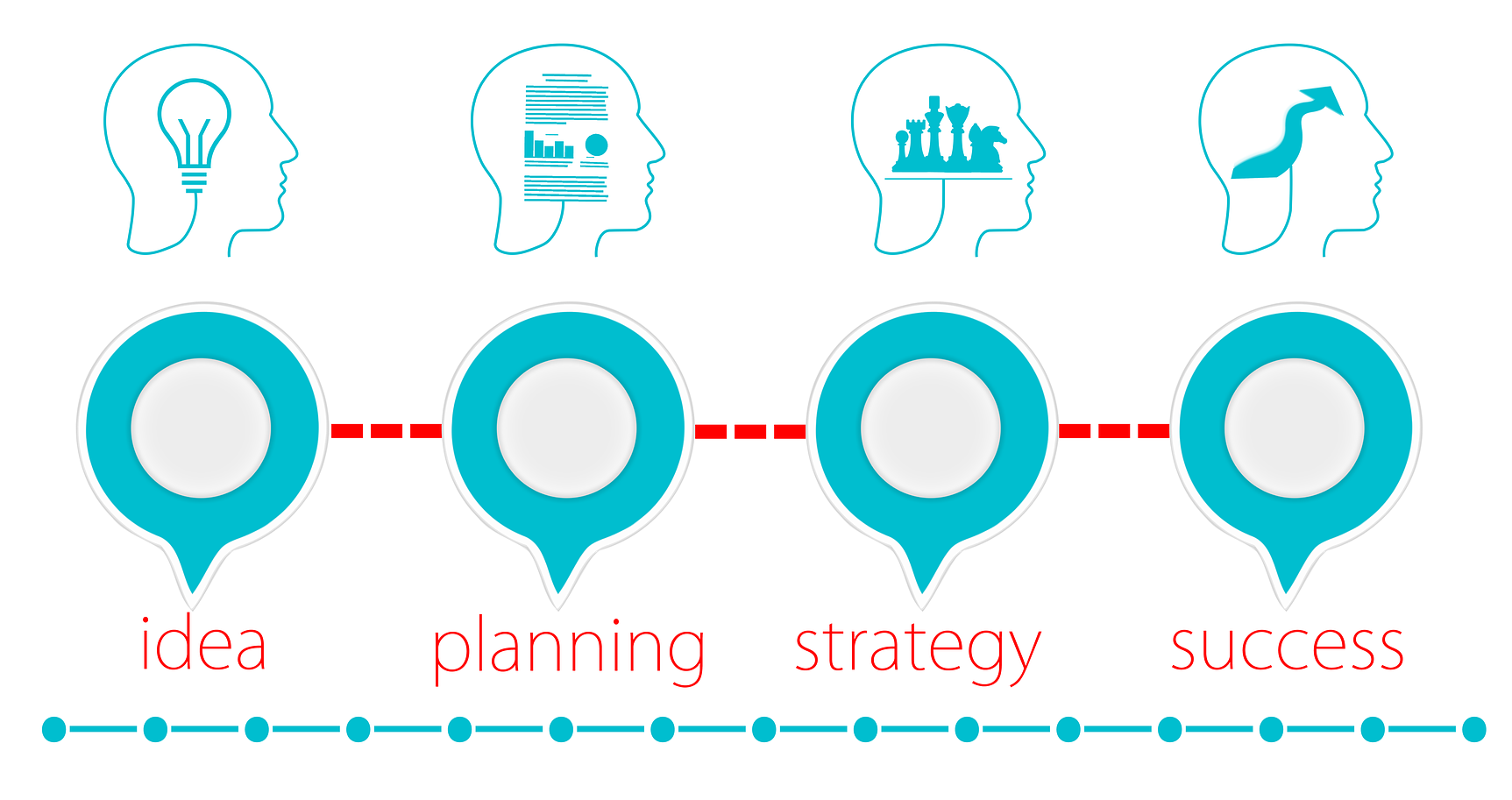Before you pick the best coach or mentor for you and your situation you likely want to make sure coaching is for you.
What is coaching, anyway? And how is it different from therapy?
Coaching generally doesn’t go into repeating stories from the past over and over again.
It focuses on the future: what do you want from life from here on? Or from relationships, your finances, or your career? Where are your obstacles? How can you change what you don’t like?
Therapy is more focused on past trauma, even small ones, that can explain the issues you’re experiencing today.
While it certainly helps to know why you may have problems, whether in life, in relationships, or your career, therapy generally doesn’t address the underlying core issues that were imprinted into your psyche. Therapy may bring them to the surface but leaves them there…unless you have a stellar therapist.

I heard numerous times from clients that they hated going into those stories, having to relive the awful moments, without any resolution.
One Army veteran said: “I could strangle my therapist. Every time we meet she wants me to describe the event again, in detail no less, but I’d much rather forget it!”(He saw his comrades killed as they got blown up by a landmine…)
Other clients complained that therapy never really got deep enough to resolve the underlying issues they brought to the table, which sometimes didn’t happen even after many months or years of regular sessions!
Coaches do not prescribe medications; they mentor and coach healthy people to inspire them and motivate them without the use of drugs, by supporting them unconditionally to find clarity about goals and helping to implement them.
Here is an article that explains the difference between coaching and therapy further, from no other than Tony Robbins.
Alright, you decided you need a coach or mentor.
By the way, I make a small distinction between the two. A coach usually asks questions and waits for the client to dig up answers. Finding the right questions to ask is an art! Only with the right questions can one find the right answers…
A mentor will go a step further. He or she will counsel the client on what next steps could be done once the answers are found.
I use a combination of coaching and mentoring when I work with clients.
What you need to know before you hire someone
You can do a Google search and you’ll likely come up with the “top 20 life coaches” or “the most successful business coaches” or similar. Great, but are you aware that you likely never will be able to talk to the guru?
Unless you’re willing to shell out up to $ 100’000 per day…Most of these super-coaches have a team of coaches working for them, which because of the brand name still cost an arm and a leg.
You want a coach who can give you results, whatever these may be.
Want to lose weight? Find someone who doesn’t tell you to do what already failed. Want to increase confidence? Find someone who doesn’t just make you recite affirmations endlessly but offers to address and resolve limiting and negative beliefs. Afraid your business is going to collapse? Look for coaches that can help with strategy, or goal setting, etc.
How do you find the people that are a match for your needs? Determine exactly what type of coach you’re looking for first.

What kind of coach is right for you?
Not all coaches are created equal. Meaning there are coaches for any specialty you can imagine. Just like there are myriads of specialized doctors, there are coaches for business, relationships, personal growth, etc. Certainly, there is overlap as relationship troubles can spill into work problems and money issues affect relationships.
Think about where in life you feel stuck, or unhappy. Is your job unfulfilling? Are people around you giving you grief? Are you languishing in a dead relationship? Do you feel there should be so much more out there for you? Do you hardly recognize what has become of you and your dreams?
Or do you feel stuck in your business? Money being tight?
Be willing to go deep and be really honest with yourself. What exactly is the matter? Whom do you blame for the situation? Is that blame justified?
What could be the cause of issues? Do you know what could be beneath the surface?
Ask yourself what held you back from doing things differently. (Note: most of the time it’s fear.)
Once you get clear on where troubles may come from, look at the broad coaching categories to help you pick the best coach for you.
There are 5 main areas coaches and mentors specialize in:
Money and Finances, Relationships, Self-Growth, Career and Business, plus Health and Fitness.
Choose the main area you’re interested in. Then dig even further.
A relationship coach, for example, can work with singles or couples. He or she can be an intimacy coach, or a dating coach, or communication for couples’ specialist.
Similarly, a business coach can be a strategist, a career specialist, or an executive coach. Business coaches can work with people in corporate environments or entrepreneurs.
Finance coaches and consultants can help with investments, saving money, budgeting, taxes, accounting, and more.
Life coaches are supporting clients with everything from finding their purpose, aligning with their soul or getting clarity on what changes would be beneficial for them.
Health coaches can help with any issues from stress relief to special diets for diabetics, and much more.
Fitness coaches focus on weight loss, nutrition, supplements, strength and endurance training, etc.
I have a friend who exclusively helps women organize their closet to declutter their life.
Another one teaches college kids how to ace their first job interview.
Yet another one focuses on helping people overcome procrastination.
Ask me about an issue, I likely know somebody who specializes in that area! If not, I can find out for you…
Oh, BTW, have I told you that my forte is relationship and business performance coaching?

Once you have nailed what we call a coach’s niche, decide whether you want to meet in person or online.
The global pandemic has forced many businesses to have their employees work remotely.
Coaches and consultants have done this long before.
For a client, there are many benefits of working with a coach via videoconference or over the phone:
- You can find the best coach for your needs regardless of where they live.
- There are many more coaches to choose from when you can cast your net wider.
- You are much more likely to find a coach whose niche is in the exact specialty you’re looking for.
- You don’t need to spend money for transportation to get to the coaches’ office.
- You can schedule any time you please and stay in your pajamas or flip-flops.
- You can get to your session even if you’re injured or sick and don’t want to infect anybody else.
- You don’t need to be afraid that intimate secrets may spill into the neighborhood inadvertently.
- You may feel more relaxed sitting at your computer in your usual environment than directly across from another person in his or her office.
- You can easily leave the session if it gets too much without feeling awkward.

Next step is to determine what qualities you’d like your coach or mentor to have.
- Do you prefer a male or female coach?
- What about their age? Is it important that a coach has certain life experience?
- Do you feel it’s important whether your coach is certified in their specialty? If so, by whom?
- What are the methods or techniques the coach uses? Do you feel comfortable with those? (Think analytical vs. woo-woo, or a talk-therapeutic approach vs. process-oriented and strategic mentoring)
- What skills or abilities should your coach have? (e.g. do you want to work with someone who has psychic abilities?)
- What kind of person do you prefer to work with? Someone who is dead serious vs. nonchalant or fun?
Just like coaches have pinpointed the character traits of their ideal clients, you can do the same!

Now, how and where do you find the perfect coach or mentor for you?
You can ask family members, friends, or another trusted source. Did they work with a coach on similar issues? It may be tough to get a referral because not everyone wants to open up about being coached or mentored.
Another option might be your social network. Try Facebook where you find many groups of coaches. Some are clearly geared towards business, while others may focus on Law of Attraction or other niches. You likely need to sign up to look up and check out members though.
Naturally, you can always ask our good friend Google.
Additionally, just like in the dating world, there are matching services that have a database of coaches. Two of these services are Life Coach Spotter or Noomii.

What to expect when you start working with a great coach:
A good coach is a great listener. A great coach doesn’t only listen well but asks the right questions. These are questions that go to the core of the problem. If an issue is only superficially addressed, it may never get resolved.
A great coach is a person who challenges you but is always on your side. You can expect to have access to your coach when you need it, whether by phone, text, or email.
He or she will hold you accountable and has high expectations of you. You can achieve more than you ever believed possible when a coach can guide you, gives you new perspectives, and makes sure you have applied what you have learned in real life.
A great coach will ask you to define your goals, and then help you design a roadmap to get to your desired results. This map is unique to you. A great coach will never use a cookie-cutter approach.
If he or she finds limiting beliefs that sabotage your progress and ultimately compromise your success, a great coach will be able to help you address and dis-create them.

Here are steps you can take to ensure you’re starting off in the right direction.
1. Make sure YOU are ready! If you think a coach will be able to solve all your issues for you while you can watch, nope, not going to happen. YOU must be willing to commit and take action.
2. Research your prospective coach. Just as the coach should vet prospective clients to see if they’re a fit, you can do the same. Check out the coach’s website, read testimonials, but better yet…
3. Talk to the coach! All coaches should offer an initial session to see whether they can genuinely help you. Most of these sessions are free or a low investment.
4. Bring your questions to your session and get a feel for the coach. Is this person “your type”? Are they fully present with you? Did they listen attentively and compassionately? Are they asking relevant questions? Did they let you do most of the talking? Did you get value from the session?
5. Review what the coach is offering you. Is the offer what you need now? How much is the transformation or achievement worth to you? How much are you willing to invest? Remember: you get what you pay for…
I invite you to check out my other website, the blog and anything about me (ask Google again!) that may be helpful to you.
When you are ready, I offer a complimentary “Clarity and Momentum” session.

In this session we’ll:
- Clarify your vision for the year ahead → What are some of the things you would need to do to get there?
- Identify key strategic milestone objectives.
- Uncover hidden challenges and blind spots that could be sabotaging your success.
- Create a three-stage long-term plan and next-step action plan.

You will leave this session excited, inspired, and reenergized about your business.
You may go to my scheduler and book a time that’s convenient for you right HERE.
Note: if you find no availability, try again a few days later! I always open up more spots as I see how the week unfolds.
Also be aware that I’ll ask you to fill out a short questionnaire before our call. I know your time is precious, and I don’t want to waste it. I’d like for both of us to come to the session prepared and ready to rock! If you don’t want to fill out the form, I respectfully must decline your booking.

0 Comments